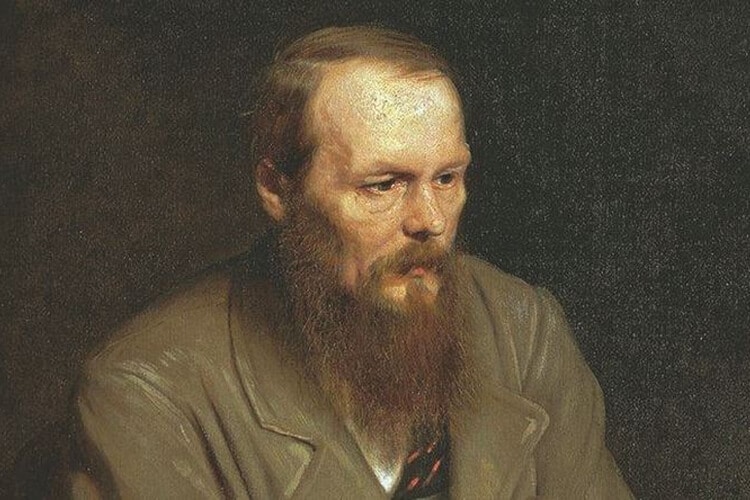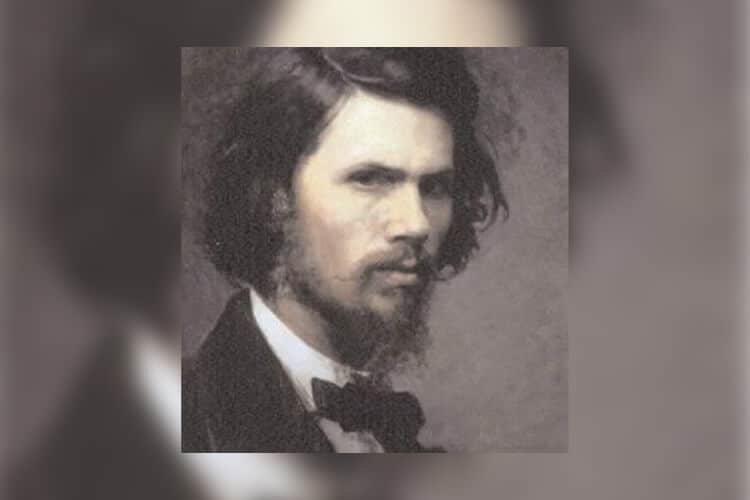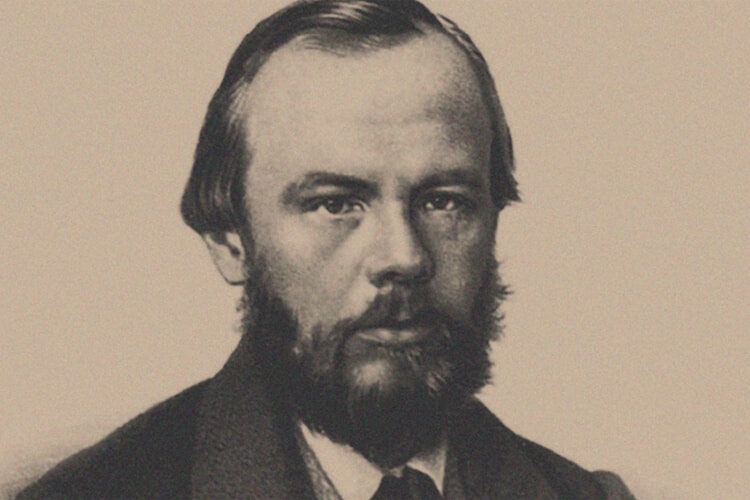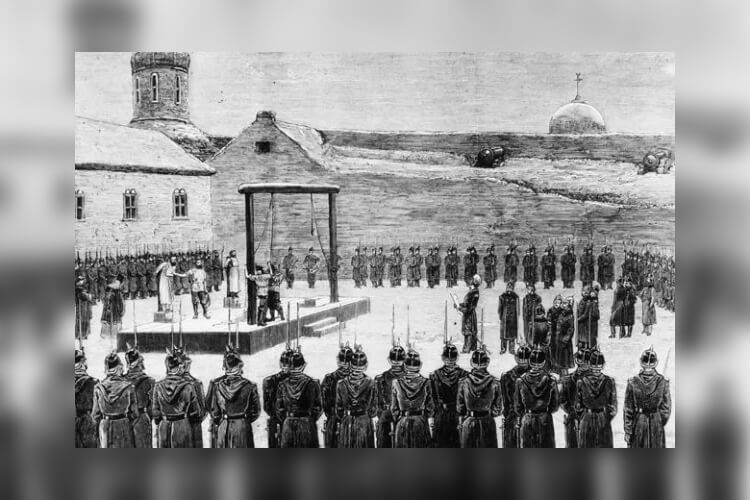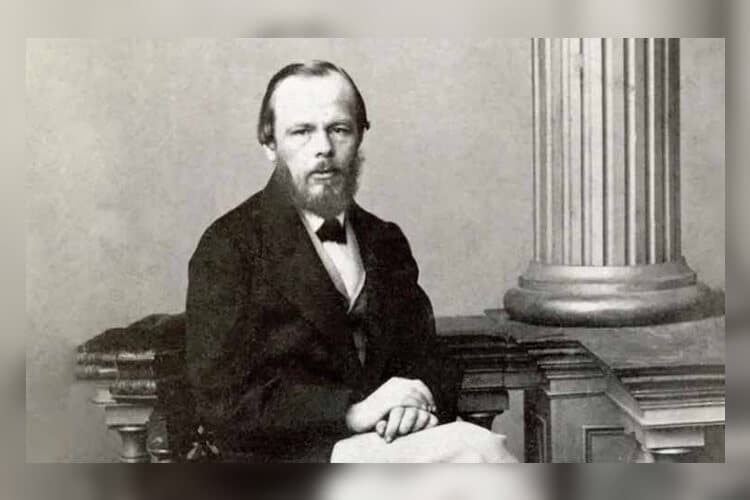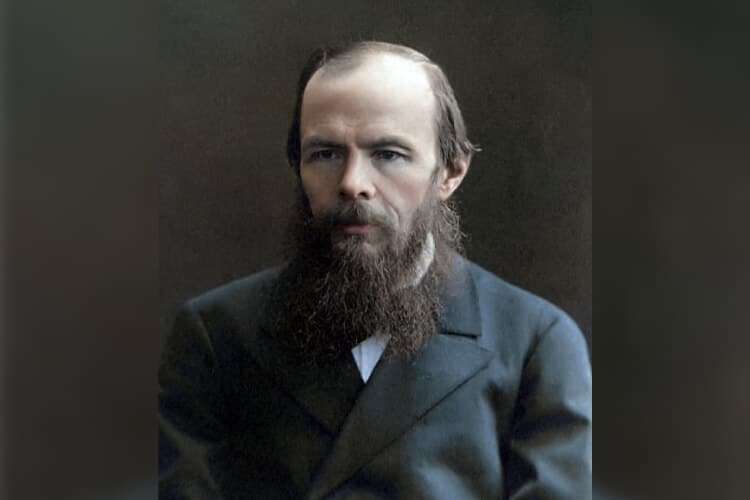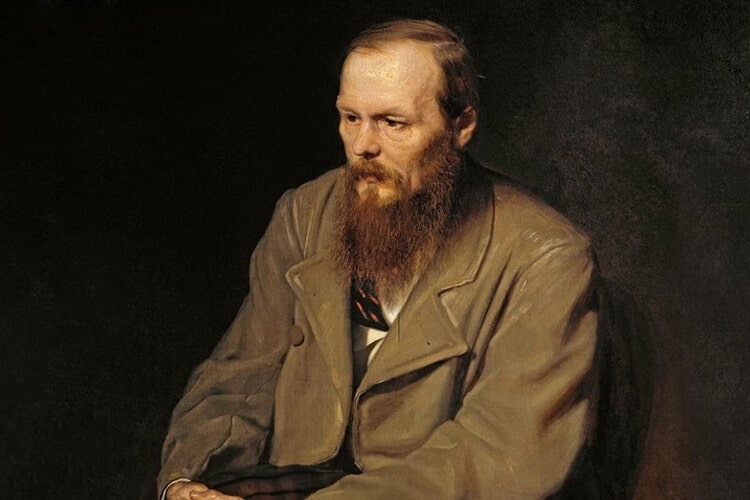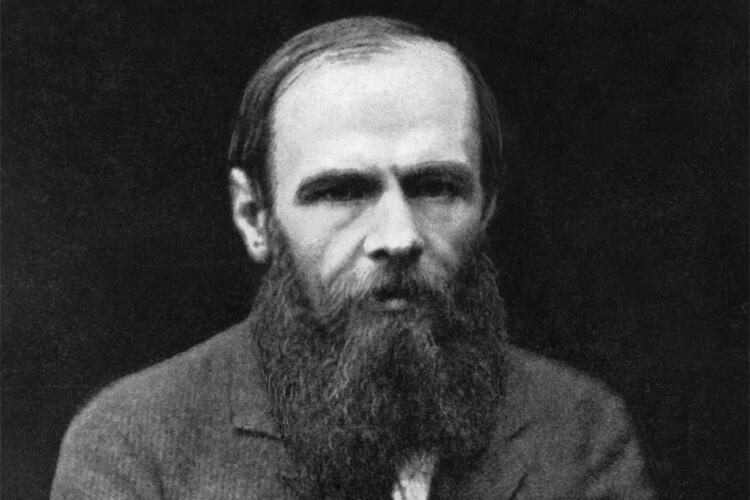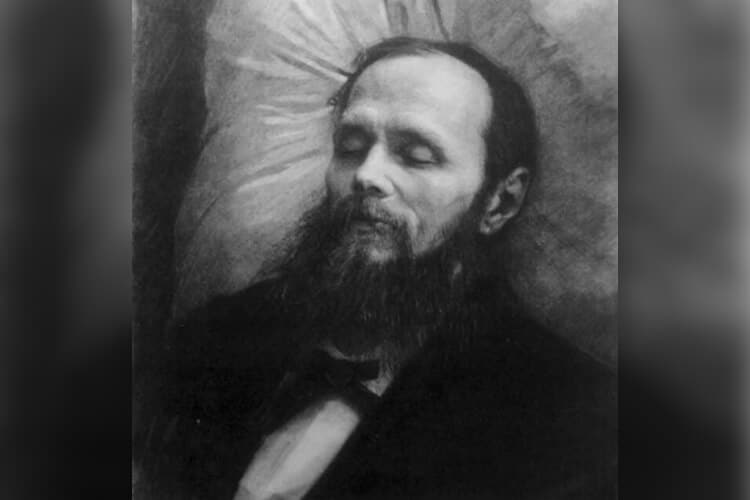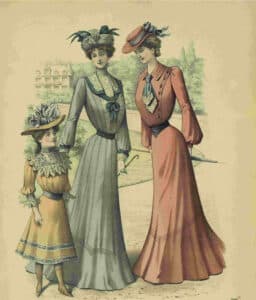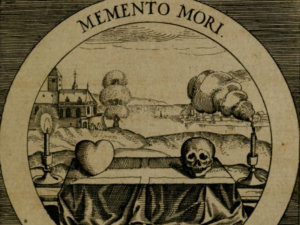In the 19th century Russian literature, writers from cultured and noble classes were mentioned. But Dostoevsky , who came from the countryside and the poor, managed to stand out from most of these writers. The famous writer, whose life has been through good and bad, lived in exile, in debt, and in prosperity in his country… Dostoyevsky, the pioneer of Russian social literature, was a person with great ideals.
But the crushing pressures of the Soviet state and society resulted in Dostoevsky’s being crushed under these ideals. Later, this harsh and overwhelming realism formed one of the building blocks of Dostoevsky’s novels. Who is Dostoevsky in this content? We try to answer his question and take a closer look at sections from the life of the famous writer.
Dostoevsky’s childhood and youth:
According to many Russian writers who wrote works of the same period, Dostoevsky came from a very different social group. His father was a former military surgeon and his mother was the daughter of a small merchant. After his father retired from military surgery, he started helping the poor at the Mariinskiy Hospital in the suburbs of Moscow. Fyodor Mikhailovich Dostoyevsky, with his full name, was born in this hospital in 1821.
Dostoevsky’s father was a cruel and alcoholic man. His mother, on the other hand, was a kind-hearted woman who struggled with recurrent illnesses. Dostoevsky’s early life was spent between these two personalities. Until he lost his mother at the age of 15…
Fyodor, who entered the Petersburg Military Engineering School at the age of 16, lost his father while continuing his education there. It is also said that Dostoevsky’s father was killed by peasants in the village where their family farm is located. After graduating from technical school, Fyodor only lasted a year to serve as a soldier.
Dostoyevsky, who resigned from his job, rolled up his sleeves to enter literature. But he had a major problem ahead of him. His family was not wealthy and he inherited a very small inheritance from his father. So when Fyodor resigned from his job and became a penniless writer, he took the first big gamble of his life. But this would not be the only gamble he had ever taken, nor would it be his biggest.
Dostoevsky and the first literary period:
We mentioned that Dostoevsky had great ideals. Fyodor took the first step towards realizing these ideals with the novel Insanciklar , which he wrote in 1846. He sent this novel to Belinski through a friend. Belinski, the famous critic of the period, liked Insanciklar very much and praised him. Thanks to this, Fyodor was able to enter the literary circle of his dreams.
Fyodor, who was suddenly in the middle of the high society, failed to impress his surroundings with both his appearance and personality. Because he was small in stature, he had a wild look with dirty little eyes and lips that were constantly twitching because of his father’s nerves. His irritable personality and clumsiness also tarnished his social image. For this reason, Dostoevsky moved away from the salons he wanted so much and began to devote himself to literature.
But here, too, things did not go as planned. Inspired by Gogol, Fyodor published his second novel, The Other , in the same year. Fyodor, who put the double personality phenomenon at the center of the novel, did not get the return he expected from this novel. He was even mocked by everyone, including Belinski. This is how Dostoevsky received his first blow from the literary community, but he did not give up on his ideals.
He wrote The Landlady in 1847. This novel also received very negative reviews. Undeterred, Dostoyevsky published his books, White Nights and a Soft Hearted, in 1848. Although a Yufka Yürekli was liked by the critics, he could not achieve the success he wanted. Dostoyevsky, whose hope in literature was finally broken, started to turn to politics.
Politics and the years of exile to Siberia:
By the time Dostoyevsky had his last novels published, he had begun to harbor opposing views to the oppressive regime of Tsar Nicholas I. Getting closer to the views of utopian socialists from the French school, Fyodor began to attend meetings held at the home of the revolutionary Mikhail Petrashevsky. Fyodor, who participated in the secret meetings of another group, started to publish another novel that would perhaps restore his reputation as a writer.
However, only three chapters of this novel were published. Because Dostoevsky was arrested along with other Petrashevsky Group members because he was trying to overthrow the state order. Fyodor, who was arrested in 1849, was sentenced to death together with his friends in 1850. But just as he was about to be shot, the Tsar was amnestied and his sentence was changed. For this reason, Fyodor was exiled to the Omsk Fortress in Siberia in 1850 to serve a 4-year sentence of hard labor.
Dostoyevsky, who worked here for 4 years in the quarries, experienced the most difficult times of his life and became attached to religion. During this period, the famous “Crime and Punishment” concept began to appear in the back of his mind. In addition, epileptic seizures that occasionally recurred in his life became permanent during these years.
Fyodor Mikhailovich, who worked in Omsk Castle for 4 years, was sent to East Kazakhstan to serve his second sentence. Here he served 5 more years as a private in the Russian army. Despite being punished for his work discipline and ambition, he rose to the rank of officer. Fyodor Mikhailovich made his first marriage in the village where he was exiled.
Dostoevsky and the second literary period:
Fyodor Mikhailovich was discharged from compulsory military service in 1859, and for the first time in 10 years he stepped back into his homeland. His beloved St. Dostoyevsky settled in St. Petersburg, where he began to publish a magazine with his brother Mikhail. Fyodor, who completely turned his back on reformist and anti-religious radicals, adopted an attitude based on brotherhood of views rather than revolution.
The magazine Vremya, which he published with his brother, also had an attitude that melted Western and Slavic views in one pot. For this reason, the magazine Vremya was very popular and Dostoevsky returned to the world of literature. Fyodor then began to write it again. Memories of the House of the Dead , which he published in his own journal, was a striking reflection of his prison years.
This book earned him more than his former reputation, and received great praise from masters such as Turgenev and Tolstoy. The Oppressed , which he wrote after this book, was not liked by the critics. But the people were almost stunned by the Oppressed. In 1862, Dostoevsky went on a trip to Europe, which he wanted so much, with the money he had saved from the revenues of the magazine.
Vremya Magazine is closing:
After Fyodor Mikhailovich returned from his trip, Vremya was closed by the Tsarist administration due to an article published in the magazine. This situation brought Dostoyevsky back to his old depressed state and period. During this depressive period, however, he fell ill with a completely different kind of illness, gambling. He even fled to Germany by borrowing money from his surroundings due to epileptic treatment.
The reason for this was to haunt the gambling tables in the famous city of Wiesbaden and meet with Polina Suslova, whom he met from the magazine. But Dostoevsky had no luck in either of these matters. The writer, who lost all his money at the gambling tables, returned to Petersburg empty-handed and heartbroken about love.
Dostoevsky returns to literature with a new magazine:
Finally returning to Petersburg, Dostoevsky received a small inheritance. He used this legacy to launch a new magazine with his brother. The new journal, Epoha , started its publication life in 1864 with the first chapter of Notes from the Underground .
But the life of the new magazine did not last long. Dostoyevsky, who first lost his wife and brother, also lost his magazine, which was closed due to debts. Fyodor then fled back to Germany, to Polina Suslova, with an advance he received from a publisher. But as a result of Polina’s deceiving him, he began to lose himself at the gambling tables.
Finally, Fyodor returned penniless to his hotel room in Wiesbaden, pawning even his clothes. Here he wrote a letter to the director of a magazine in Russia. In this letter, he was talking about the novel Crime and Punishment he was planning to write, and he asked for an advance. When the advance he had been waiting for finally came, Dostoevsky returned to Russia in 1865.
Dostoevsky and the era of the great novels:
When Fyodor Mikhailovich returned to Russia, he set about writing the book he had promised for the advance he had received while fleeing to Germany. The delivery date of this book was about a month away. This book, which we know as The Gambler , was published, albeit a little late, in 1866. In this book, as you can imagine, Dostoevsky’s toxic period with Polina in Germany was told.
After this novel, the main cult and major novels of Dostoevsky began to appear one after the other. Crime and Punishment , released in 1866, was a great success. In 1867 he married his secretary, Anna Grigorievna Snitkina. But even though Dostoevsky achieved success with his novels, his gambling addiction was causing new debts day by day.
Therefore, with Snitkina, she fled Russia to get away from creditors and relatives who asked for help. Dostoyevsky, who lived in great poverty for four years, had to travel from country to country during this period. Yet our unyielding author wrote The Idiot in 1868. Although the idiot had great success, Dostoevsky finished the money he received for the novel before the novel was published. Fyodor, who was still penniless, wrote The Eternal Husband in 1870.
Dostoevsky’s last periods:
After the novel The Eternal Husband, Fyodor began working on a five-book anthology called The Life of a Great Sinner. Unfortunately, Dostoyevsky’s lifetime was not enough to write this anthology, however, The Possessed , which was published in 1872, touched upon the concepts of crime and punishment that he wanted to commit in this anthology.
Fyodor returned to Petersburg with the success of his book The Possessed. He was appointed as the head of the magazine called Dostoyevsky Grajdanin , which was accepted again in the Aydın circle. Fyodor, who could not come to terms with the owner of the magazine, resigned from his post a year later. Meanwhile, he had received a large amount of money thanks to the collections his wife had cleverly published.
This was the signal for Dostoevsky’s seclusion. From this period until 1876, Dostoevsky began to spend his days by publishing monthly articles. At this time, he wrote and published his novel named ” Delikan “.
In 1879 and 1880, he wrote and published The Brothers Karamazov , perhaps the first book of his anthology The Life of a Great Sinner. Because the character of Alyosha Karamazov in this book would appear in other books of the anthology.
Fyodor Mikhailovich Dostoevsky dies:
Dostoevsky finally created a character that would appear in his novels for a long time. But his life was not enough to start other books. Dostoyevsky, a world-renowned and respected writer, died in 1881 due to a lung hemorrhage, having achieved his ideals.
Dostoyevsky, who died at the age of 59, had a very tough and difficult life. His own ” stupidities ” and his inability to keep up with the society caused him to suffer from mental illnesses all the time.
Although he couldn’t be content, Fyodor Mikhailovich achieved his ideals by scraping them with his nails. More than 30 thousand people attended the funeral of Dostoevsky, who died on January 28, 1881.
The Life and Theories of Freud, the Founder of Psychoanalysis
Stefan Zweig and Life: A Unique Literary Story from Nazi Germany

